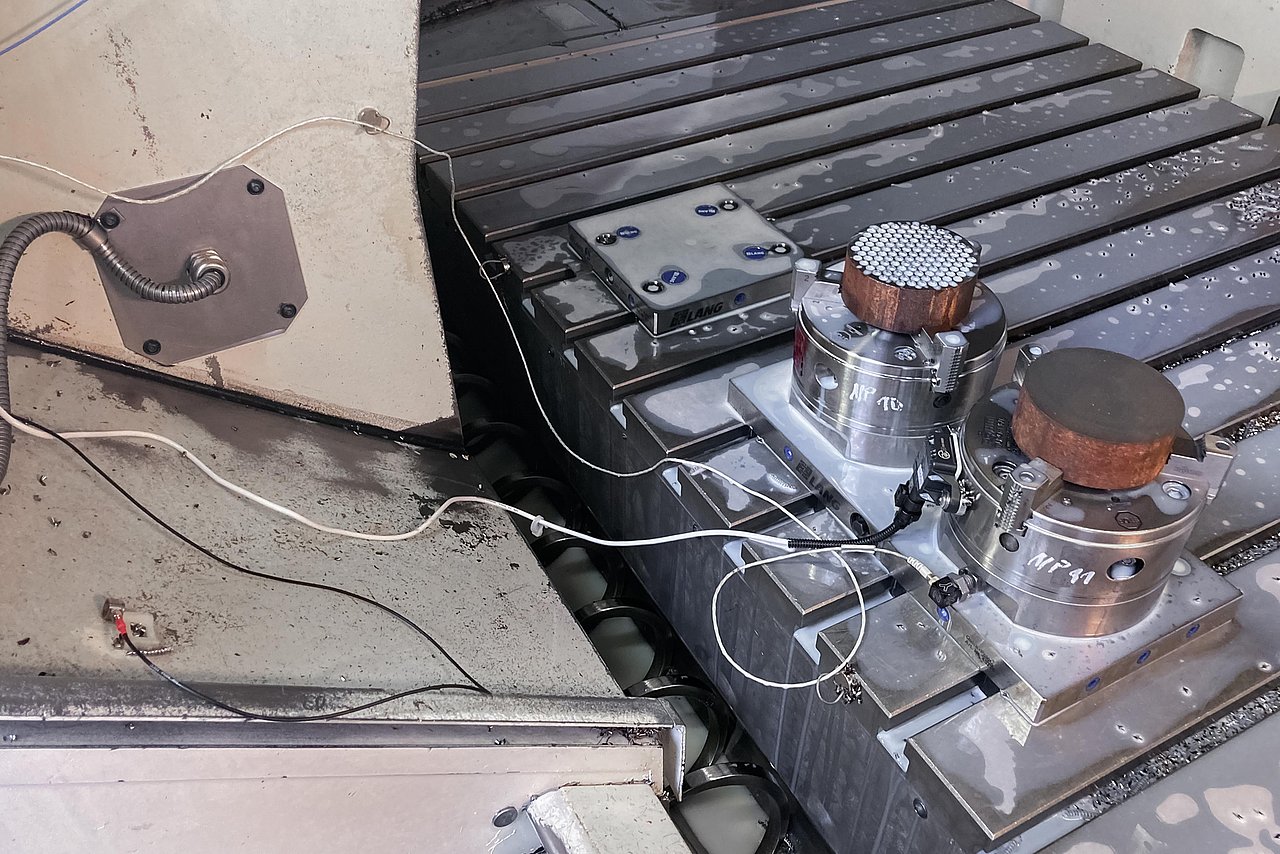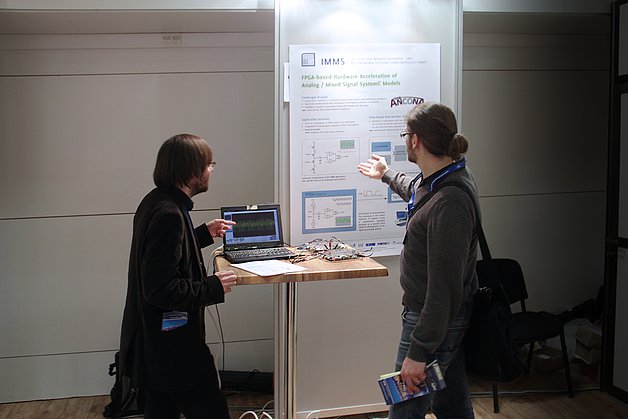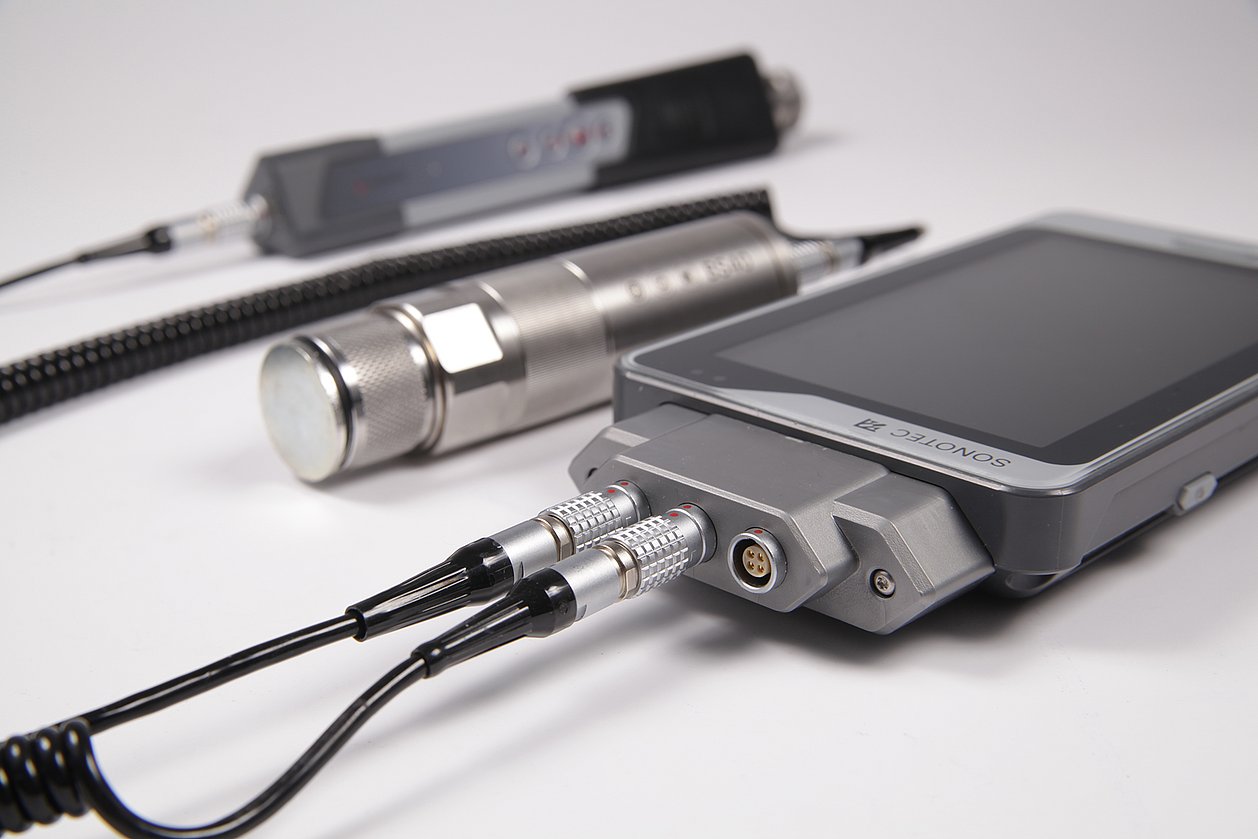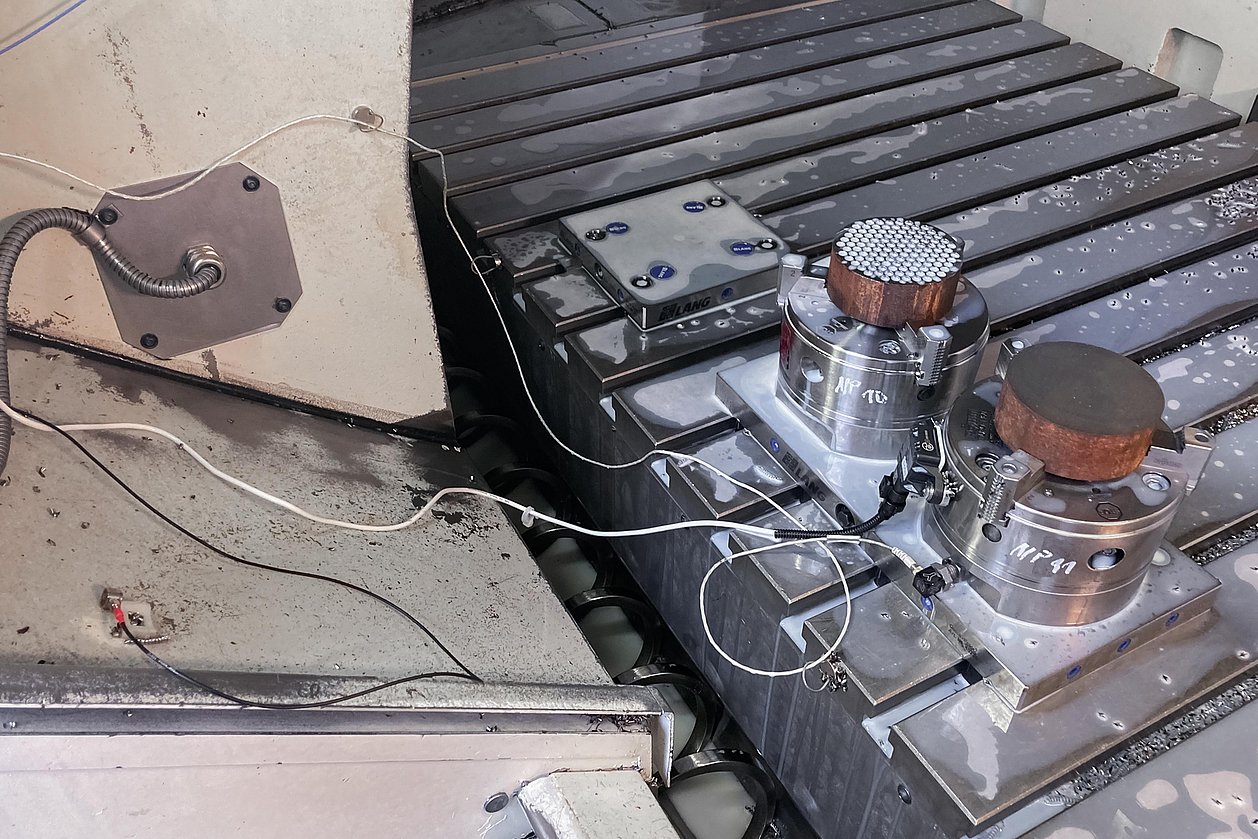Project KIQ
IMMS has developed an AI-based, retrofittable and cost-effective solution for quality assurance of machining tools.
Recognising and eliminating actual wear instead of prematurely changing tools
To ensure consistent quality in machining and to avoid unplanned machine downtimes as well as rejects due to worn tools, these are replaced regularly. Depending on the boundary conditions, however, wear can vary by up to 50%. Therefore, the tools are usually changed far before the end of their service life, which leads to additional costs.
Although the wear of the tools can be determined at special test stations with optical and tactile measuring methods. But since this is too time-consuming in practice, the tools are usually replaced at fixed intervals. With a new approach, the wear can be determined using various measured variables during machining. Together with its partner GFE, IMMS has implemented an AI-based, retrofittable and cost-effective solution for this purpose.
In principle, the measurement data of the sensors already integrated in the spindle, such as current or vibration sensors, can be accessed for this purpose on newer machines. However, they cannot be used to their full extent and in real time. This is currently only possible with retrofittable solutions.
AI-based retrofittable and cost-effective solution for quality assurance of drills in machining
In the project, IMMS retrofitted a precision machining centre for the project partner with vibration sensors and a compact processing unit close to the machine with integrated AI. With this, the vibrations occurring during drilling in different frequency ranges were recorded simultaneously at several points in the machining area and used as training data for a software based on machine learning. This is capable of both estimating the current state of wear and predicting the remaining useful lifetime (RUL) of the tool.
Data is collected using 3-axis accelerometers on the spindle housing and the workpiece fixture. To reduce the amount of data and derive specific features, the signals are first preprocessed with various operations. The AI model was trained with the data from several measurement series based on an artificial neural network. The signal preprocessing and the trained AI model can be executed in real time in a compact box directly on the machine. The result can be provided directly at the machine both as a predicted remaining tool life and as a classified wear condition of the tool.
The work on KIQ was a sub-project in the “Mittelstand 4.0-Kompetenzzentrum Ilmenau”.
Acronym / Name:
KIQ / AI-based quality assuranceDuration:2020 – 2021
Application:
Automation technology and Industry 4.0|Manufacturing and metal processing industryResearch field:Smart distributed measurement and test systems
Related content
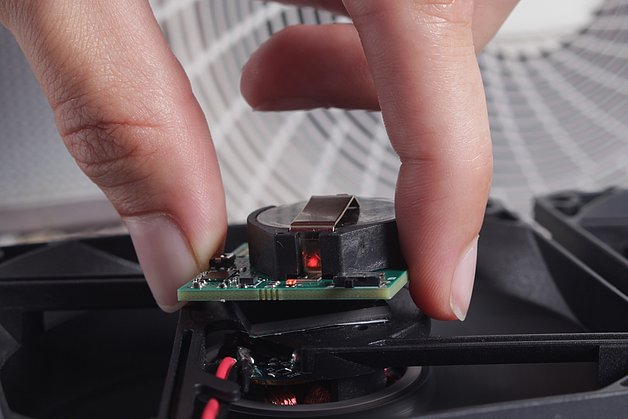
Event,
Silicon Saxony Day
The Silicon Saxony Day offers unique insight into future technologies and business solutions covering hardware, software and connectivity topics.
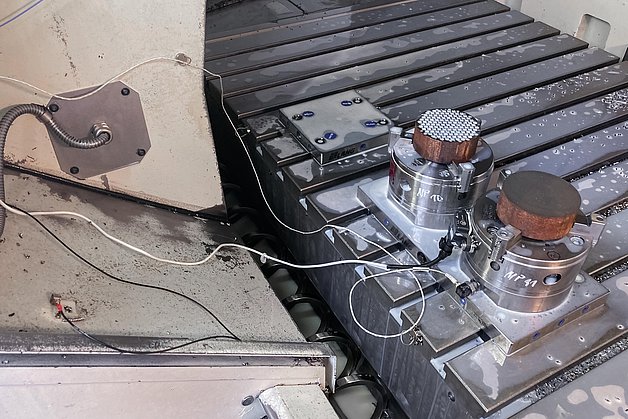
Event,
Forum Künstliche Intelligenz
Artificial Intelligence Forum of the German specialist media Elektronik, Elektronik automotive und Computer&AUTOMATION. The forum was cancelled by the organiser.
Contact
Contact
Dr.-Ing. Tino Hutschenreuther
Head of System Design
tino.hutschenreuther(at)imms.de+49 (0) 3677 874 93 40
Dr. Tino Hutschenreuther will answer your questions on our research in Smart distributed measurement and test systems and the related core topics Analysis of distributed IoT systems, Embedded AI and Real-time data processing and communications, on the lead applications Adaptive edge AI systems for industrial application and IoT systems for cooperative environmental monitoring as well as on the range of services for the development of embedded systems.
Contact
Dr.-Ing. Frank Spiller
Head of Business Development and Central Projects
frank.spiller(at)imms.de+49 (0) 3677 874 93 61
As Head of Business Development and Central Projects Dr. Frank Spiller is your contact person for SME Digital topics as well as for the research and development of application-specific automation systems for industry:
- Retrofittable sensors for innovative diagnostics, maintenance and service concepts
- Universal electronic platforms for Industry-4.0-compliant components
- Open source software and AI-based data processing for industrial applications
Funding
The ”Mittelstand 4.0-Kompetenzzentrum Ilmenau“ (centre of excellence in Ilmenau serving SMEs) was part of the funding initiative „SME 4.0 – Digital Production and Work Processes“ which was funded by the German Federal Ministry of Economic Affairs and Energy (BMWi) within the funding programme „Digitising SMEs – Strategies towards digital Transformation of Business Processes“. IMMS was funded under the reference 01MF16005C.
The work of IMMS as ”Smart Sensor Systems Model Factory“ is funded by the German Federal Ministry for Economic Affairs and Climate Action (BMWK) in the ”SME Digital Centre Ilmenau“ under the reference 01MF21008C and continues the activities from the ”Mittelstand 4.0-Kompetenzzentrum Ilmenau“.


